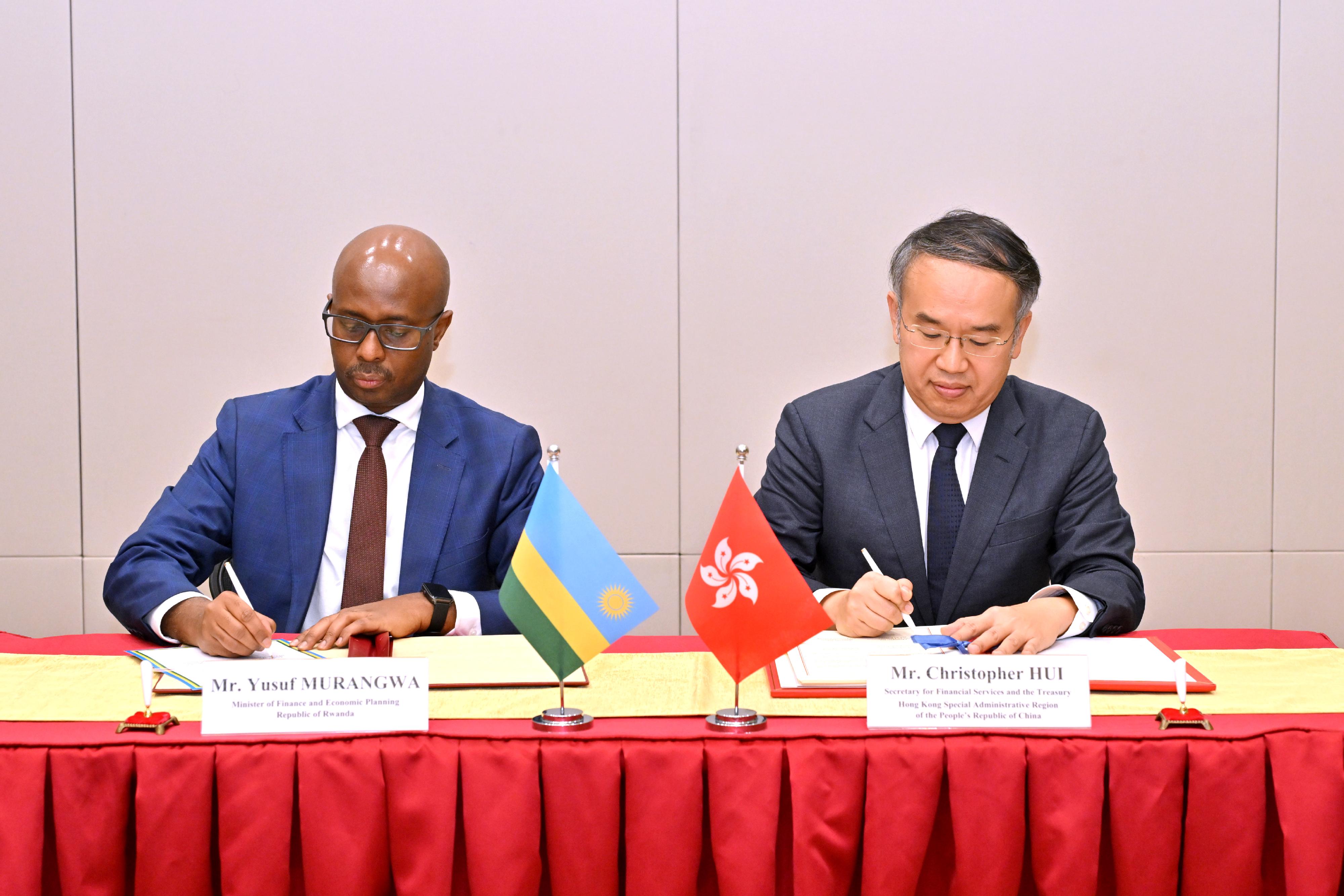
Hong Kong and Rwanda signed a comprehensive avoidance of double taxation agreement (CDTA) on Thursday, setting out the allocation of taxing rights between the two places.
Hong Kong Secretary for Financial Services and the Treasury Christopher Hui Ching-yu signed the agreement on behalf of the Hong Kong Special Administrative Region government during a bilateral meeting with the Minister of Finance and Economic Planning of Rwanda Yusuf Murangwa in Hong Kong, the SAR government said in a statement.
Noting that Rwanda is a participant in the Belt and Road Initiative, Hui emphasized that the CDTA signifies the HKSAR government’s determination to expand Hong Kong's CDTA network and its enhanced collaboration with tax jurisdictions participating in the initiative.
“The CDTA demonstrates Hong Kong's continuous efforts in deepening co-operation with Belt and Road economies, and is also a significant milestone in promoting the financial, economic and trade connections between Hong Kong and Rwanda,” said the secretary.
ALSO READ: Hong Kong, Jordan sign tax pact to avoid double taxation
Highlighting the SAR’s "dual superpower" as a "super connector" and a "super value-adder", he said the pact sets out the allocation of taxing rights between Hong Kong and Rwanda, which will help investors better assess their potential tax liabilities from cross-border economic activities.
"This will be conducive to creating a more favorable and attractive business environment, thus promoting bilateral trade and investment."
Under the CDTA, Hong Kong residents can avoid double taxation in that any tax paid in Rwanda will be allowed as a credit against the tax payable in Hong Kong in respect of the same income under the tax laws of Hong Kong.
Rwanda's withholding tax rates for Hong Kong residents on dividends, interest, royalties and fees for technical services, currently at up to 15 percent, will be reduced to 7.5 percent to 10 percent.
The agreement, the 54nd that the city has concluded, will come into force after ratification procedures by both jurisdictions.
In Hong Kong, the Chief Executive-in-Council will make an order under the Inland Revenue Ordinance, which will be tabled at the Legislative Council for negative vetting.


